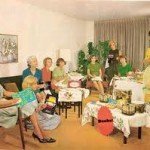Reading & Discussion Prompts
Questions & Activities to support our understanding of literacies…hopefully
Sponsors, as I have come to think of them, are any agents, local or distant, concrete or abstract, who enable, support, teach, model, as well as recruit, regulate, suppress, or withhold literacy-and gain advantage by it in some way. Just as the ages of radio and television accustom us to having programs brought to us by various commercial sponsors, it is useful to think about who or what underwrites occasions of literacy learning and use. Although the interests of the sponsor and the sponsored do not have to converge (and, in fact, may conflict) sponsors nevertheless set the terms for access to literacy and wield powerful incentives for compliance and loyalty. Sponsors are a tangible reminder that literacy learning throughout history has always required permission, sanction, assistance, coercion, or, at minimum, contact with existing trade routes. Sponsors are delivery systems for the economies of literacy, the means by which these forces present themselves to-and through-individual learners. They also represent the causes into which people’s literacy usually gets recruited.
QW: Who “sponsors” your literacy practices? Both in productive and restrictive ways? Start to list out sponsors and their purposes/effects on your literacies.
Share QW with group, then work with section more closely:
- Sponsorship/Teaching and the Dynamics… (167-169 & 183-last paragraph)
- Morgan, Orion, Alaina, Mireya / Virginia, Illiannah, Laila
- Sponsorship and Access (169-173)
- Jacob, Casey, Ben / Sofia, Hayden, Tim, Brennan
- Sponsorship and the Rise in Literacy Standards (173-178)
- Aaron, Marysa, Audrey / Bella, Kotanya, Rachael
- Sponsorship and Appropriation In Literacy Learning (178-183)
- Cody, Amber, Chloe, Kaitlin / Tatiana, Miguel, Natalie
As a group, summarize your section and talk about why it matters to us (prepare to share out with whole class). As part of your discussion: What do the case studies illuminate in your section? What claims is she able to make using the cases as examples?
In a nutshell: summary of your section (major claims), how the case studies function in your section (how do the cases connect to her claims), and why these ideas matter to us?
Looking across your pilot data, what are reading and writing for?
How could you quantify everyone’s literacy notes? What categories emerge? What literate activities take up the most time? What counts as a literacy: how did you decide to say “this is an example of a literacy”? Did literacy things get left out?
What activities [were] carried out with written symbols? What significance [do you] attach to them and what status is conferred on those who engage in them? (modified from Scribner)
How do you account for activity, production, consumption, circulation, and distribution?
Literacy as a set of socially organized practices which make use of a symbol system and a technology for producing and disseminating it. Literacy is not simply knowing how to read and write a particular script but applying this knowledge for specific purposes in specific contexts of use. A piece of writing, whatever its form, serves as a flag to signal activities in the ongoing stream of behavior that may have some component skills in common (Scribner & Cole 258).
Scribner, S. & Cole, M. (1981) The psychology of literacy. Cambridge, MA: Harvard University Press.
Aug 26

Literacy practices: Barton & Hamilton
Literacy…
literacy as doing, as a social practice (Barton)
literacy as accomplishing things with reading and writing (Brandt)
Girls use literacy to present a particular kind of self. Literate practices served to mark social boundaries (Finders)
Literacy as the ability to read and write situates literacy in the individual person, rather than in society. The practices of social groups are never just literacy practices; they also involve ways of talking, interacting, thinking, valuing, and believing. Can not pull apart literacy practices from non-literacy practices. (Gee)
Learning to write means learning to write in the ways (genres) those in an activity system write (Russell)
Literacy as a set of socially organized practices, which make use of a symbol system and a technology for producing and disseminating it. Literacy is not simply knowing how to read and write a particular script but applying this knowledge for specific purposes in specific contexts of use. A piece of writing, whatever its form, serves as a flag to signal activities in the ongoing stream of behavior that may have some component skills in common (258). (Scribner and Cole)
Literacy as a shorthand for the social practices and conceptions of reading and writing. ideological model of literacy: concentrate on the specific social practices of reading and writing. significance of socialization process in the construction of meaning of literacy for participants (Street)
conceptions of practice
Scribner and Cole: By practice, we mean a recurrent, goal-directed sequence of activities using a particular technology and particular systems of knowledge. A practice consists of: technology, knowledge, and skills (236). Practice always refers to socially developed and patterned ways of using technology and knowledge to accomplish tasks.
Wenger: Practice is always social practice. Practice: Doing in a historical and social context that give structure and meaning to what we do. as soon as members have access to the practice, they find out what counts
What are all the literate activities that make up getting to the class today? Make a list. How did you learn to do the things in your list?
Compare lists in groups. Create a chart with some categories. We’ll share out and talk about our decision rules for creating the categories.
Aug 28
In groups: How does Szwed understand literacy practices (what does he mean by the social meaning of literacy) (422-423)? How does he say others define literacy? Why is this narrow definition a problem according to Szwed?
“…the roles these abilities play in life”
Point us to a passage to consider as a class: What does it say, what does it mean, why does this matter?



 Website:
Website: